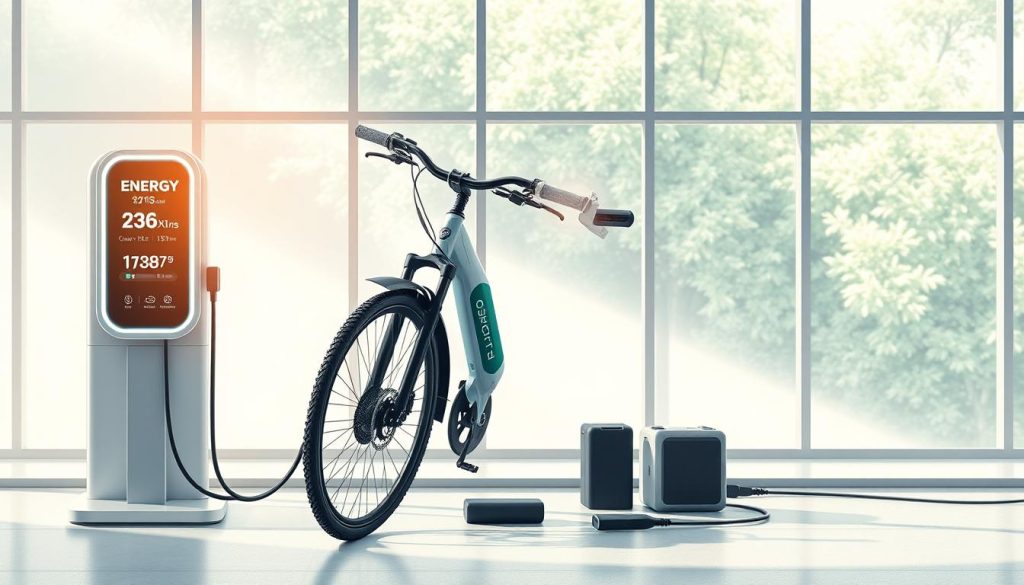Electric bikes are transforming how people commute, exercise, and explore. But before jumping into this eco-friendly trend, many wonder: does the financial commitment make sense? Let’s break down what you need to know.
Prices for these pedal-assisted rides vary widely. Entry-level models start around $1,000, while premium options can hit $12,000. While that’s a big range, even mid-tier bikes often cost less than a single year of car payments or public transit passes in cities like New York or Los Angeles.
Beyond the sticker price, recurring expenses matter. Maintenance fees for brakes, tires, and chains typically run lower than those for cars. However, battery replacements—a unique e-bike expense—can add $500-$800 every 3-5 years. Balancing these factors helps determine true affordability.
Performance and quality also play roles. Higher-priced models often feature longer-lasting motors, better suspension, and smarter tech integrations. Real-world testimonials show many riders offset upfront costs by ditching gas, parking fees, or ride-share apps entirely.
Whether you’re a daily commuter or weekend adventurer, understanding the full picture matters. This guide dives into purchase decisions, hidden fees, and long-term savings—all to help you decide if an electric bike fits your lifestyle and budget.
Understanding the Initial Investment in an E-Bike
Investing in an e-bike requires balancing price and performance. Prices vary based on design, battery life, and motor strength. Whether you’re replacing a car commute or seeking weekend adventures, matching your needs to the right model is key.
Upfront Cost Range and Options
Basic commuter models start around $1,000, offering simple pedal-assist features. Mid-range options ($2,500–$4,500) add better batteries and smoother motors. High-end bikes ($7,000+) include custom frames, ultra-responsive tech, and extended ranges.
| Type | Price Range | Key Features | Best For |
|---|---|---|---|
| Basic Commuter | $1,000–$2,500 | Entry-level motor, standard battery | Short daily trips |
| Mid-Range | $2,500–$4,500 | Upgraded brakes, longer-range battery | Mixed terrain use |
| High-End Custom | $7,000–$12,000 | Lightweight materials, smart connectivity | Performance enthusiasts |
Features and Customization Factors
Battery quality impacts both cost and longevity. A 500Wh battery suits casual riders, while 750Wh+ systems handle steep hills. Motor power (250W–750W) affects speed and climbing ability.
Insurance isn’t mandatory but adds $10–$30 monthly for theft protection. Compared to car payments averaging $700/month, even premium e-bikes save money over time. Frequent riders often recoup costs within 18 months through fuel and parking savings.
Comparing E-Bike Prices to Traditional Transportation Options
Shifting from cars to pedal-assisted rides can lead to surprising savings. Let’s explore how these two-wheelers stack up against four-wheeled alternatives in both upfront and ongoing expenses.

Cost Comparison: E-Bikes vs. Used and New Cars
A quality e-bike typically costs 5-10% of a used car’s average $27,000 price tag. Even premium models rarely exceed $12,000—less than half the price of many new compact cars. Monthly costs tell a similar story:
| Expense Type | E-Bike | Used Car | New Car |
|---|---|---|---|
| Purchase Price | $1,500–$12,000 | $15,000–$27,000 | $28,000+ |
| Annual Fuel/Electricity | $30–$50 | $1,500–$2,200 | $1,800–$3,000 |
| Yearly Maintenance | $100–$300 | $600–$1,200 | $500–$900 |
| Daily Parking (Urban) | $0–$5 | $10–$40 | $10–$40 |
Long-Term Financial Implications
Over five years, commuters could save $8,000+ by choosing electric bikes. Reduced brake wear from regenerative braking systems cuts repair costs by 40% compared to cars. Parking fees alone drain $2,500 annually in cities like Boston or San Francisco.
Gas prices add another layer of savings. At $3.50/gallon, car owners spend $0.15/mile versus $0.004/mile for e-bike charging. These benefits compound over time, making two-wheeled travel increasingly cost-effective.
Maintenance and Hidden Expenses of E-Bike Ownership
Owning an electric bike involves more than just the initial purchase. While upkeep costs are lower than cars, understanding routine care helps avoid surprises. Let’s explore what keeps these rides rolling smoothly.

Battery Replacement and Tune-Ups
Regular maintenance keeps electric bikes reliable. Brake adjustments, chain lubrication, and tire checks cost $50–$150 annually. Batteries last 2–5 years, with replacements averaging $600. Compare this to car oil changes ($80) or brake repairs ($300+).
| Maintenance Task | Frequency (E-Bike) | Frequency (Car) | Average Cost (E-Bike) | Average Cost (Car) |
|---|---|---|---|---|
| Brake Service | Every 500 miles | Every 20,000 miles | $40 | $250 |
| Battery Replacement | Every 3 years | N/A | $600 | N/A |
| Tire Replacement | Every 1,500 miles | Every 50,000 miles | $70 | $400 |
Insurance and Registration Considerations
Most states don’t require registration for bikes. Theft insurance runs $15/month—far cheaper than car coverage. Hidden costs include sturdy locks ($100+) and weatherproof gear. Still, annual expenses rarely exceed $500 for most riders.
Unlike cars, you won’t face emissions tests or title fees. This simplicity makes electric bikes a low-hassle transportation choice. Just keep tires inflated and batteries charged!
A Break-Down of Running Costs: Charging and Energy Efficiency
Powering your ride with electricity instead of gas unlocks unique savings opportunities. Let’s explore how daily charging habits and smart energy use keep your wallet happy while reducing environmental footprints.

Cost per Mile: Electricity vs. Gas
Charging an e-bike costs about 7 cents per full cycle—enough for 20-50 miles. That’s roughly $0.004 per mile. Compare this to a Toyota Corolla, which spends $0.15/mile at $3.50/gallon. Over 1,000 miles, you’d save $146!
| Vehicle Type | Cost per Mile | Annual Cost (5,000 miles) |
|---|---|---|
| E-Bike | $0.004 | $20 |
| Compact Car | $0.15 | $750 |
Charging Frequency and Ongoing Expenses
Most riders plug in every 2-3 days for 30-mile commutes. Premium batteries last longer—some handle 70 miles per charge. This cuts charging sessions by half compared to budget models.
High-quality cells also degrade slower, maintaining 80% capacity after 1,000 cycles. Pair this with regenerative braking systems, and you’ll squeeze more life from each charge. Over five years, efficient charging habits could save $500+ in electricity bills.
These savings ripple beyond money. Reduced fuel consumption slashes carbon emissions by 1.3 tons yearly versus cars. Every pedal-assisted mile strengthens both your budget and the planet’s health.
The Cost of Owning an E-Bike: Is It Worth the Investment?
Many riders discover their two-wheeled investment pays dividends quickly. Immediate savings come from skipping gas stations and avoiding pricey parking fees. Monthly maintenance costs stay low—about what you’d spend on coffee for a week.
Breaking Down the Numbers
In the first year, commuters often save $1,200+ by ditching cars. Public transportation costs drop too—no more $120 monthly passes. Over five years, these savings compound, often covering the initial cost of mid-range models.
| Expense | E-Bike | Public Transportation |
|---|---|---|
| Annual Fuel/Pass | $40 | $1,440 |
| Yearly Maintenance | $200 | $0 |
| Parking Fees | $60 | $300 |
Health benefits add hidden value. Reduced stress from traffic and increased activity cut healthcare costs. Sarah, a Denver nurse, shares: “I save $90 weekly on transit while getting fit—it’s a win-win way to commute.”
Public transportation remains a good choice for long distances, but e-bikes excel in urban areas. They offer flexibility—no waiting for buses or trains. For families, sharing one e-bike between members can multiply savings per year.
While the upfront price feels steep, most users break even within 18 months. After that, every mile ridden puts money back in your pocket. It’s not just about dollars—it’s about reclaiming time and enjoying the ride.
Health, Environmental, and Lifestyle Benefits of E-Bike Ownership
Pedaling toward better health and cleaner air, electric bicycles offer rewards beyond financial savings. These two-wheeled marvels reshape daily routines while contributing to personal wellness and planetary healing.
Boosting Physical Health and Mental Wellbeing
Regular e-bike use strengthens hearts and clears minds. Studies show riders get 150+ minutes of weekly moderate exercise—meeting CDC guidelines without gym fees. Benefits include:
- 22% lower risk of cardiovascular disease
- 30% reduction in stress hormones
- Improved sleep quality from daylight exposure
Boston University research found commuters save $1,800/year in healthcare costs through increased activity. Even pedal-assist modes engage core muscles, making fitness accessible to all ages.
Reducing Carbon Footprint and Environmental Impact
Swapping car trips for e-bike rides slashes emissions dramatically. One year of commuting prevents 1.5 tons of CO2—equivalent to planting 18 trees. Compare transportation impacts:
| Transport | CO2 per Mile | Annual Emissions (5k mi) |
|---|---|---|
| Gas Car | 411g | 4,555 lbs |
| Public Transit | 177g | 1,985 lbs |
| E-Bike | 22g | 243 lbs |
While upfront costs concern some buyers, the environmental benefits multiply over time. Cities like Portland report 12% cleaner air since e-bike adoption programs began. Every charge cycle supports sustainable energy grids too—most riders power up during off-peak hours.
Choosing pedal-assisted travel isn’t just smart budgeting—it’s a daily vote for healthier communities and thriving ecosystems. The road to wellness starts with a single revolution.
User Experiences and Real-Life Savings
Stories from actual riders reveal how pedal-assisted commuting reshapes budgets and daily routines. Across cities like Seattle and Miami, people report slashing transportation costs while gaining unexpected perks like stress reduction and community connections.
Real-World Testimonials
Mark, a Chicago teacher, swapped his SUV for a Voya E+ model. “I save $380 monthly on gas and parking,” he shares. “The 60-mile range handles my commute, and I’ve lost 15 pounds in six months.” His battery still holds 92% capacity after 18 months of daily use.
Portland nurse Lisa chose the Tripper Falcon II Sport XL for uphill routes. “No more $200 monthly parking fees,” she notes. “I arrive energized instead of frustrated by traffic.” Both riders emphasize how reliability in various weather conditions surprised them.
Comparative Case Studies
| Metric | Pre-E-Bike | Post-E-Bike |
|---|---|---|
| Monthly Fuel Costs | $240 | $8 |
| Annual Maintenance | $1,100 | $175 |
| Time Saved Weekly | 3.5 hrs | 6.8 hrs |
Urban commuters report 22% fewer sick days due to increased activity. Families using shared e-bikes save $3,200 annually versus maintaining a second car. From college campuses to downtown areas, riders praise how these vehicles simplify life while keeping wallets full.
Ready to Make the Switch? Final Reflections on Your Investment
Choosing an e-bike isn’t just about transportation—it’s a lifestyle shift with financial and environmental perks. While upfront prices vary, most riders recover initial costs within two years through fuel savings and reduced car dependency. Annual maintenance stays manageable, often under $300, while avoiding parking fees and public transit passes adds up quickly.
Over five years, commuters typically save thousands compared to car ownership. Health improvements—like lower stress and better fitness—compound these savings. Environmentally, each mile ridden slashes carbon emissions by 94% versus gas vehicles. That’s like planting 18 trees yearly through pedal-powered commutes.
User stories and cost comparisons reveal consistent patterns. Mid-range models often pay for themselves in 18 months, while premium options excel for performance enthusiasts. Batteries and motors improve yearly, making newer models increasingly efficient.
When weighing costs, consider time regained from traffic jams and the joy of breezy commutes. Testimonials and data confirm e-bikes deliver value beyond dollars—cleaner air, stronger communities, and personal empowerment. Ready to redefine your ride? This eco-friendly choice might just be your smartest move yet.

